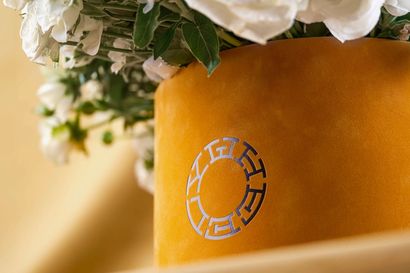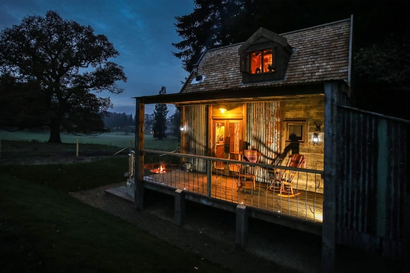A bluffer’s guide to the Rugby World Cup
From the peripheral players whose names you should know, to the stadiums playing host to the games, here’s how to become a World Cup expert
Strap on your scrum caps, folks; the Rugby World Cup is about to come charging back into our lives. Over the next six weeks, the tournament will punt its way into pubs, charge down your weekend plans and spear tackle your water cooler conversation into submission. So you’d better be prepared.
This year, Japan is hosting the tournament — the first time the World Cup has been held in Asia — and there’s much to be excited about right off the bat. Will New Zealand’s All Blacks fall at the first hurdle when they meet Rassie Erasmus’ Springboks this weekend? Will the rampaging Asian humidity lead to more sweaty slips and spills of the ball, as is the very real worry? And could the flying Fijians really cause an upset for the ages?
Or could we be speaking Japanese for all you care? If rugby isn’t your sport, the next month or two could get very awkward for you — so it pays to pull up your stripy socks and tuck away some niche knowledge for when you get mauled by enthusiasts of the egg.
Learn some choice terminology
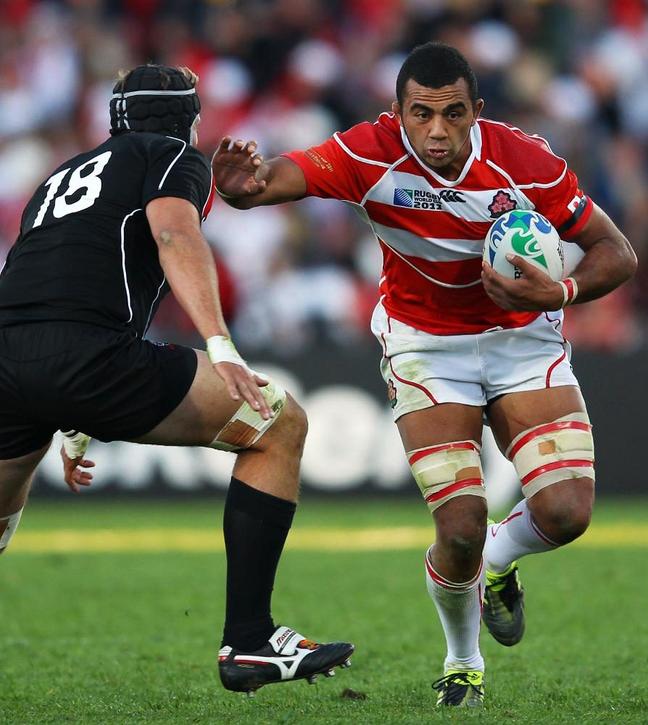
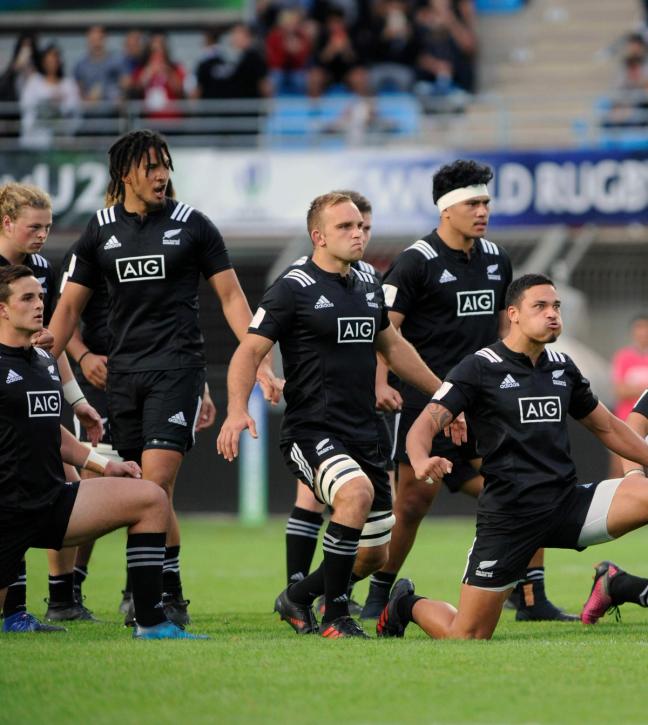
As talk turns to rugby, you’ll want to drop some technical terms into conversation. This way, when eyebrows are raised at your World Cup credentials, you’ll be able to reassert your rugby expertise with some vocab and vernacular. Our tip? Go for obscure, esoteric words and phrases — and you’ll switch from outsider to oracle before the half-time whistle blows.
Garryowen: A high, short punt onto or behind the defending team. Also called an up-and-under kick.
Grubber: A style of kick, directed towards the ground and forced to bounce.
Bill: The Australian name for the Webb Ellis Cup (that’s the Rugby World Cup, if you didn’t know).
Jackaling: The crafty winning of the ball by the defender’s team, after a tackle and before a ruck has formed.
Haka, Sipi Tau, Cibi and Siva Tau: Ceremonial war dances from New Zealand, Tonga, Fiji and Samoa, respectively.
Know both the big shots and some peripheral players
Even the most disinterested viewer could name you a couple of captains, or several star players who’ll be taking to the field this World Cup. And, while you should know the hot shots, real die-hard enthusiasts are experts on everyone. They’ve turned the team sheets upside down and learned facts and figures about even the most peripheral players. So here are a handful of sportsmen, from the big stars to the sidelined, for you to name drop as they drop kick.
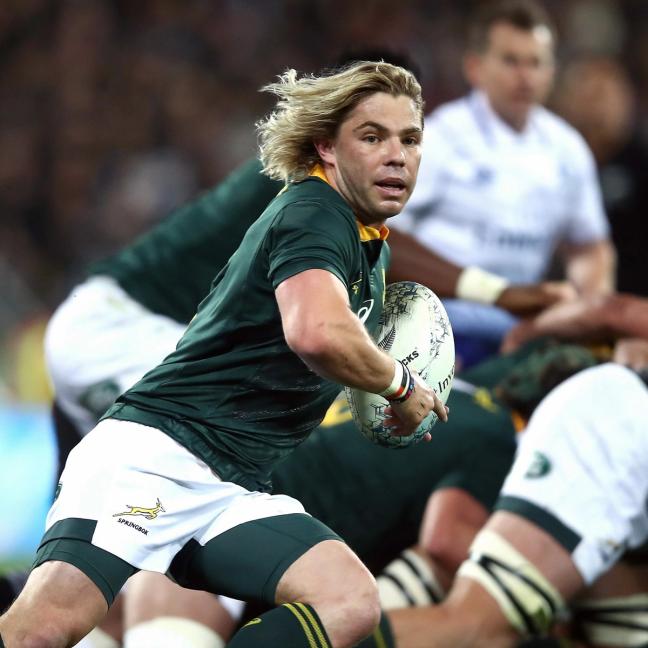
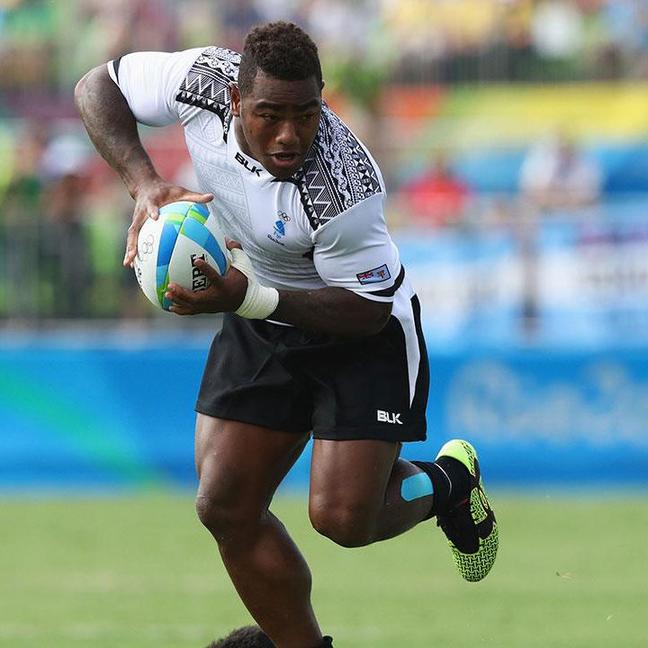
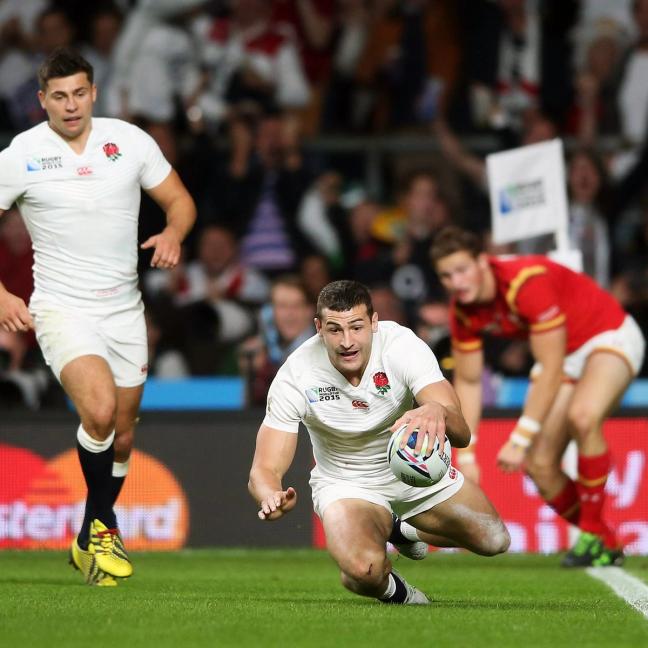
Faf de Klerk: The diminutive South African is feisty on the field and has bags of energy. Allegedly cartwheels during training.
Cheslin Kolbe: Another short player, and another South African, he is one of the tournament’s fastest and quick-witted players.
Jonny May: England’s wunderkind has top-notch aerial skills and runs straighter than anyone else. A good bet to finish leading try scorer.
Alivereti Raka: The Fijian-born wing became an official French citizen last year, and will be playing in blue. His last name means ‘rugby’ in Fijian.
Josua Tuisova: As a wing or centre, the young Fijian’s strong playing style has earned him the nickname ‘The Bus’. Won a gold medal in Olympic sevens back in 2016.
Which teams to watch
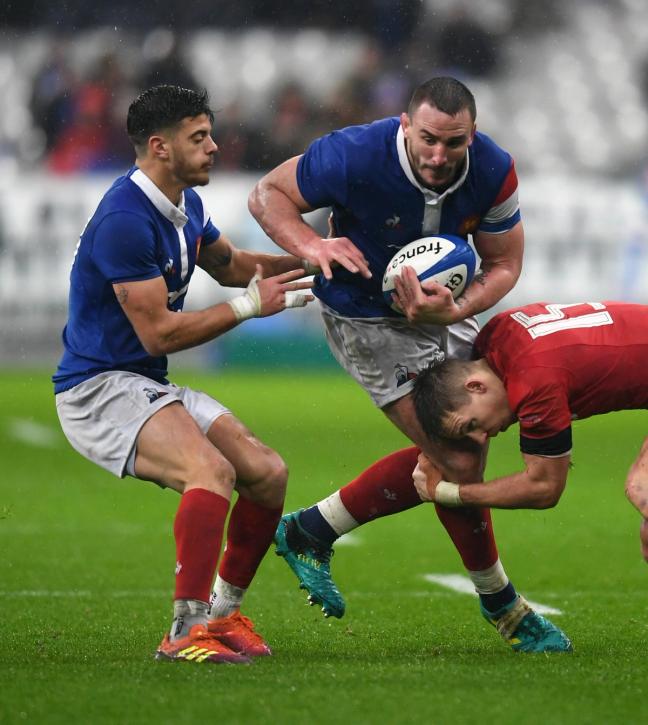
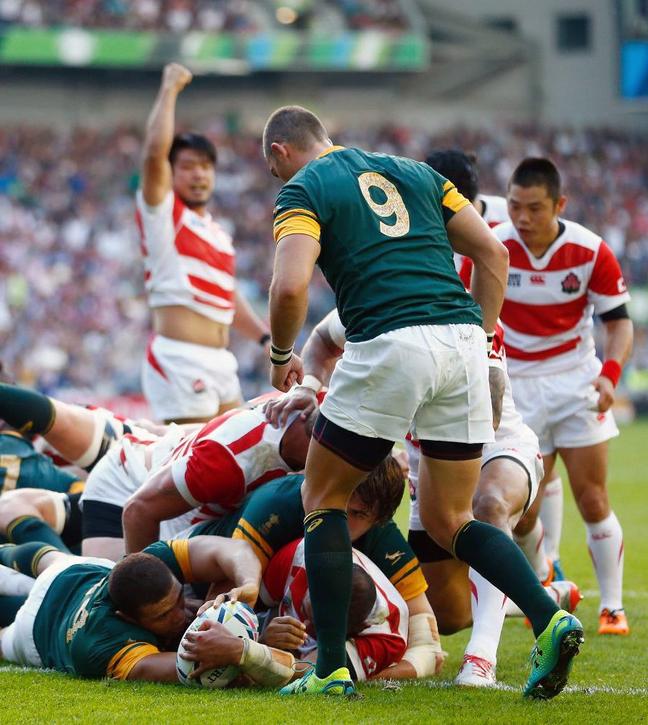
Unsurprisingly, the odds are stacked in New Zealand’s favour. If the All Blacks manage to beat South Africa in their pool game, it’s a fairly easy path to the final. If not, there are a few more teams likely to lift ol’ Bill. If asked for your prediction, we’d recommend offering up one of the following.
England: The boys in white are peaking just in time for the World Cup, have no current injuries and the second shortest odds.
South Africa: If they win all of their pool games, the Springboks look like a good bet. One of the strongest back threes in the competition.
Ireland: A disappointing Six Nations campaign may have knocked the Irish, but they are currently ranked No.1 in the world.
Japan: You can’t underestimate home advantage, and the Michael Leitch-led Japanese side have recently beaten Samoa, the USA and Fiji.
Fiji: Speaking of the island nation, Fiji have been hotly tipped to reach the quarter finals. They’ll never win, but they could give us some upsets along the way.
What to shout at the TV
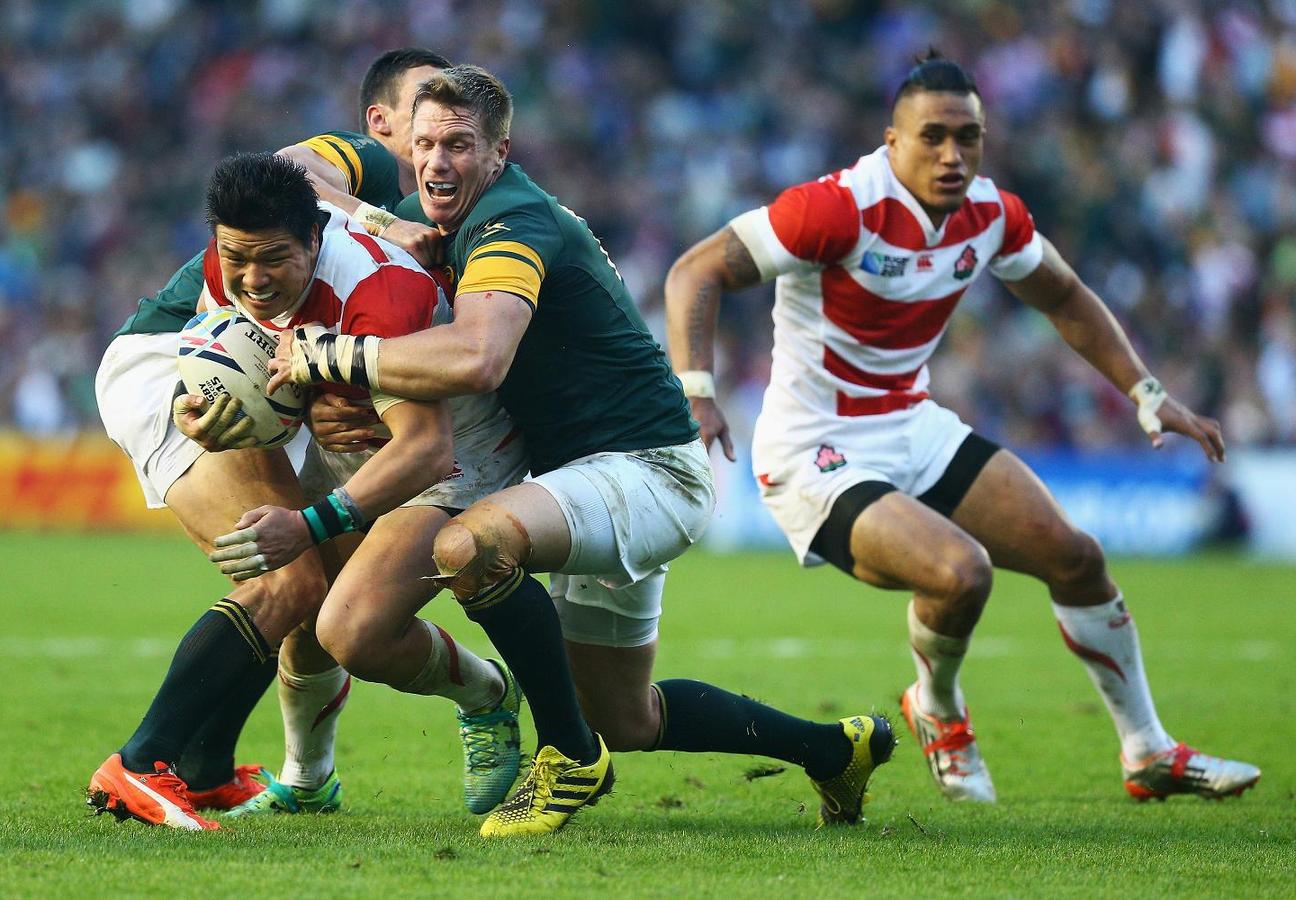
At some point during the next month or so, you’ll be sitting in a crowded pub or crammed onto the sofa with your flatmates, and they’ll be shouting what, to you, sounds like nonsense. But, just so you don’t feel left out, why not throw a couple of these zingers out yourself?
“He’s got to let him up!” A niche rule that many fans seems to delight in calling out — especially those overly-keen chaps who haven’t played rugby since they were 12 and liked to wear grim mitts. Call it when a player dives on a loose ball, and another player jumps on top of him without giving him a chance to get up first.
“Surely hands in the ruck, sir!” If the ball is slow in coming out of a ruck, accuse the opposite side of jiggery pokery with an extravagant flourish of your Guinness hand.
“Let the boys play!” If the referee is getting a little whistle-happy, encourage him to adopt a more liberal policy to the laws in your finest, richest Dublin outfit.
Brush up on some stadium titbits
Nothing says fanatic like knowing some choice architectural facts about the 12 country-wide stadiums in which Japan will host their World Cup games. So, if you’ve exhausted your player trivia, here are four of the finest venues and some secrets to roll out during half time.
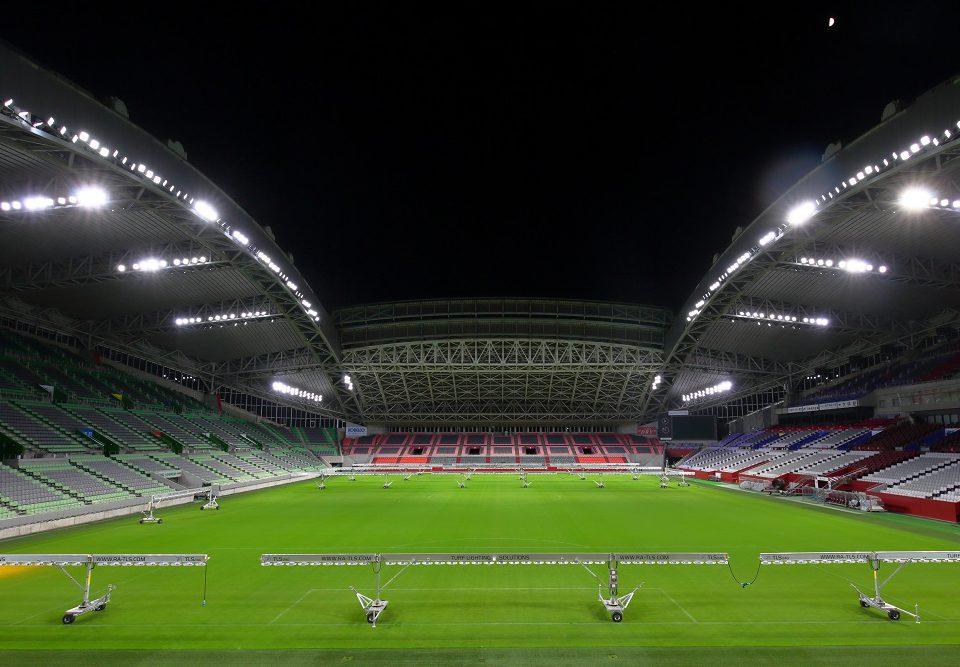
Sapporo Dome: Home field of the Hokkaido Nippon-Ham Fighters baseball team, this stadium was the venue for the opening ceremony of the 2017 Asian Winter Games.
International Stadium Yokohama: With 75,000 seats, this stadium has the highest capacity of any venue in Japan. It will host the final game of the World Cup.
Kamaishi Recovery Memorial Stadium: Newly built for the World Cup, this stadium was only completed in August of last year. It cost three billion yen.
Hanazono Rugby Stadium: The oldest dedicated rugby stadium in Japan, Hanazono is home to the Kintetsu Liners team — and will host four pool games this year.
Looking for more insight? Gentleman’s Journal last week hosted a live Rugby World Cup podcast…

Become a Gentleman’s Journal Member?
Like the Gentleman’s Journal? Why not join the Clubhouse, a special kind of private club where members receive offers and experiences from hand-picked, premium brands. You will also receive invites to exclusive events, the quarterly print magazine delivered directly to your door and your own membership card.
